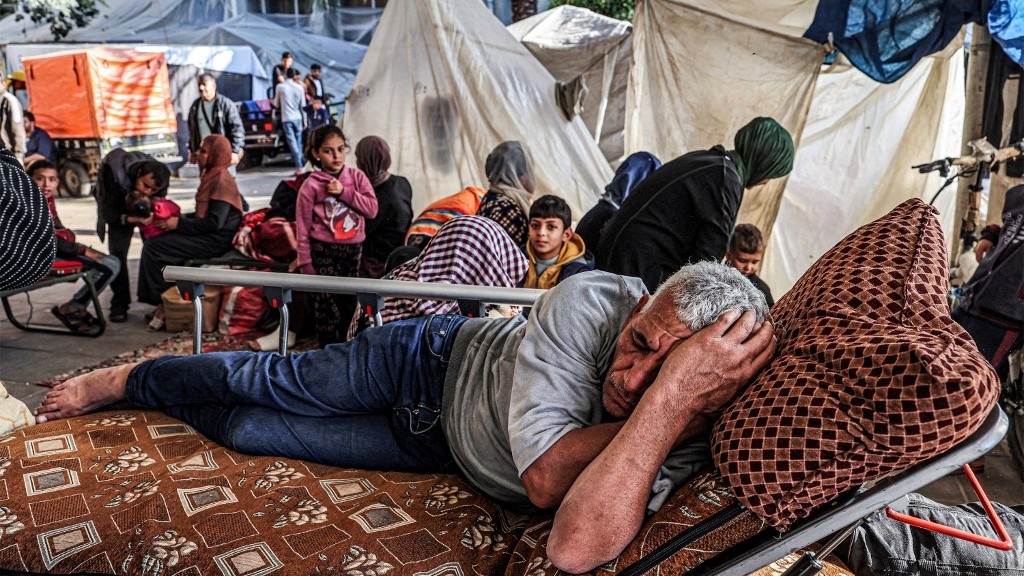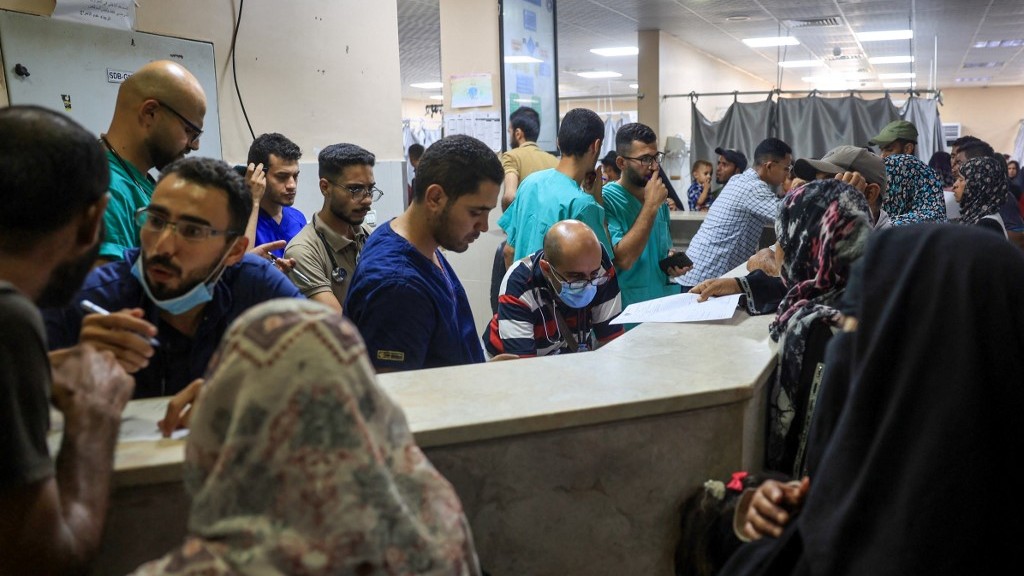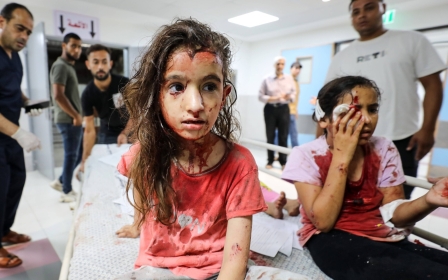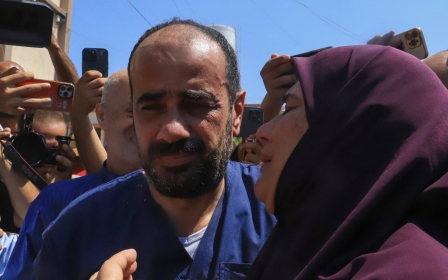War on Gaza: Patients scramble for safety and care after European Gaza Hospital halts operations

The forced removal of Palestinians from the European Gaza Hospital this week, ahead of a feared Israeli assault, will have a devastating impact on its patients and further fracture Gaza’s shattered healthcare system, doctors and NGOs tell Middle East Eye.
It was to the 650-bed facility in Khan Younis, one of the last standing in Gaza, that patients with acute neurological cases, heart problems, genetic disorders and chronic conditions requiring specialist care were often referred.
The hospital housed one of Gaza’s best burn units and frequently drew in international medical teams who provided specialist treatment, including performing surgeries.
But that work came to a halt on Tuesday, a day after the Israeli army ordered the forced removal of most areas east of Khan Younis and Rafah along the Egyptian border.
Hospitals and other medical facilities have special protections under international humanitarian law. The Israeli military put out a separate statement, hours after the order, saying that it didn’t apply to patients or medical staff in the hospital.
New MEE newsletter: Jerusalem Dispatch
Sign up to get the latest insights and analysis on Israel-Palestine, alongside Turkey Unpacked and other MEE newsletters
But those in touch with hospital staff said the past nine months, which has seen the Israeli military attack hospital after hospital, had taught them that nowhere was safe.
Dr James Smith is a UK-based emergency physician who returned in June after working for two months in Gaza.
“People are under no illusion that European Gaza Hospital as a facility is somehow going to be protected, which is why patients and staff started to flee at the same time as everyone else,” he told Middle East Eye.
“They know they won’t be spared.”
Fleeing on foot
Videos were shared on X of patients fleeing on foot, including several being pushed on stretchers more than 11 kilometres to Nasser Hospital, the nearest facility which has only recently started functioning again after an Israeli army siege and raid earlier this year.
“We suffered a lot during the journey,” said one man on a gurney. “I’ve been wounded for five months, crippled and laying on my back. I’ve undergone no operations.”
Hospital staff also posted videos that captured the chaos around them.
“We need the whole world to know that we are here and we need protection,” said one healthcare worker.
“Where is your humanity? The last hospital standing in Gaza is about to be invaded and destroyed. Do something about it.”
Late on Monday, one doctor posted a video saying he was one of five remaining physicians at the hospital and would stay until everyone was gone.
“I don’t know what is going to happen next, but we will be on standby and we will deal with it when it comes,” he said. “Wish me good luck.”
The European Hospital is being forcibly evacuated by israeli troops prior to their attack: our Dr Mohamed is refusing to leave his patients behind and is courageously staying: listen to his message to us all, share far and wide and please pray for him pic.twitter.com/LZbCgqX6NH
— Rebuild Gaza (@RebuildGaza0) July 1, 2024
Getting out of the hospital will have been the first challenge for patients. Many ambulances are currently out of commission as a result of fuel shortages.
“It’s a constant problem,” said Somaya Ouazzani of the UK-based NGO, Children Not Numbers. “You can’t just make a call and have ambulances transport people.”
Last week, Ouzzani said a caseworker from Children Not Numbers urged a mother to get her young son with a heart condition to European Gaza Hospital because he was having seizures.
The mother was among those who fled this week, with her son who needed care, a baby and two other children in tow.
“She’s lost everything,” Ouzzani said. “She didn’t have the luxury of packing all her bits and pieces and taking them.”
In the end, she said they had an aid distribution van pick up the mother and her children to take them to Nasser Hospital.
Other families were reluctant to move to Al-Aqsa Hospital, a facility in Deir al-Balah to which patients were fleeing, fearing it was in a danger zone and likely under threat.
"Ultimately, you are asking parents: do you transport all your kids somehow, somewhere to another hospital in an area which is considered to be hugely at risk," Ouzzani said.
"Or keep them in an area that is likely to come under bombardment and not admit them to a hospital and just hope for the best. They are decisions that no parent should ever make."
'Phenomenal pressure'
But even if people make it to Al-Aqsa or Nasser, the nearest hospitals, those facilities are already overstretched, with this new wave of patients set to put “phenomenal pressure” on them, said Smith.
“Most of these hospitals have next to no capacity themselves,” he said. “They are almost all full.”
Among the patients who fled the European Gaza Hospital were 48 children registered with Children Not Numbers who were waiting for approval to eventually leave Gaza for medical treatment no longer available in the enclave.
Since last October, they are among over 12,000 Palestinians who have submitted requests to Israel and Egypt to be given permission to leave for medical reasons. As of late May, the World Health Organisation said only 46 percent of those requests had been approved.
At European Gaza Hospital, the children will have been getting the best care they could receive in Gaza while they wait to go elsewhere.
'It's just impossible to create any semblance of patient care'
- Somaya Ouzzani, Children Not Numbers NGO
“If they’ve left, they will receive, despite the best efforts of Palestinian health care workers, even less of the care that they need,” Smith said.
With people fleeing the hospital, Ouzzani said organisations like hers will be scrambling to find tents or baby formula or get families transported to hospitals rather than managing children's medical conditions.
"It's really, really hard to catch a break," she said, late on Tuesday. "It's just impossible to create any semblance of patient care."
Sondos Shalaby contributed to this report
Middle East Eye delivers independent and unrivalled coverage and analysis of the Middle East, North Africa and beyond. To learn more about republishing this content and the associated fees, please fill out this form. More about MEE can be found here.





